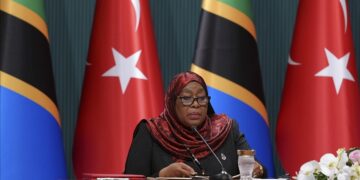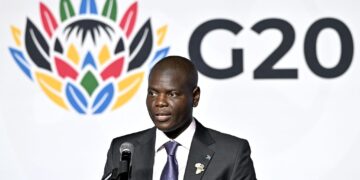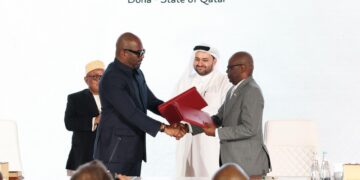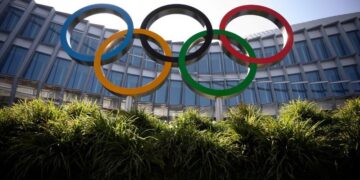The African Union Commission has welcomed the recent signing of the Doha Framework for a Comprehensive Peace Agreement between the Democratic Republic of the Congo and the March 23 Movement, describing it as a pivotal step toward resolving the enduring conflict in the eastern region of the DRC. The agreement, announced on Saturday by Qatar’s Ministry of Foreign Affairs, underscores renewed momentum towards a negotiated settlement after years of instability, displacement and protracted armed confrontations.
The Chairperson of the African Union Commission, Mahmoud Ali Youssouf, issued a statement lauding the courage and political resolve demonstrated by both parties. He affirmed that the Doha Framework represents meaningful progress in efforts to rebuild trust and address the deeper structural and historical roots of conflict in the eastern DRC. The African Union views the agreement not merely as a cessation of hostilities but as a foundation for a broader reconciliation and governance process that centres on local agency and inclusive dialogue.
Youssouf also extended gratitude to the State of Qatar for its diplomatic facilitation and enduring support of the process, noting its constructive role in bridging divides and fostering regional cooperation. Qatar’s involvement reflects an emerging landscape of African and global partnerships that centre African-led peace efforts while recognising the interdependency of regional and international actors in conflict mediation.
The Doha Framework, which includes six follow-up protocols, is expected to guide the implementation process with structured timelines and accountability mechanisms. The African Union has encouraged all stakeholders involved to uphold both the spirit and letter of the agreement, and to engage meaningfully in the subsequent stages of negotiation and institutional reform.
As the Doha process unfolds, the African Union has reiterated its commitment to supporting the peace framework through its diplomatic, logistical and peace and security architecture. This includes coordination with regional bodies and local communities to ensure that the peace process addresses long-standing grievances, displacement, security vacuums and the socioeconomic marginalisation that have fuelled the protracted cycles of violence in North Kivu and surrounding areas.
The Doha agreement emerges at a critical juncture for the Democratic Republic of the Congo, where overlapping security, humanitarian and political crises have hampered development and deepened social fractures. While past peace deals have faltered due to weak enforcement and exclusionary tactics, the AU has called for a more inclusive, community-rooted and durable solution that prioritises local reconciliation and sustainable governance frameworks.
In reaffirming its stance, the African Union underscored the need for coordinated continental solidarity to ensure that peace in the Great Lakes region is not pursued in isolation but through interconnected strategies of development, justice and regional integration. The emphasis, according to Youssouf, must be on an African solution to an African problem, one that resists reductive narratives and instead embraces the complex historical, ethnic and political dynamics at play.
The Doha Framework is not an endpoint but the beginning of a complex and nuanced journey towards peace. Its success will ultimately be determined by the actions of local, national and regional actors who must navigate the post-agreement environment with care, vision and inclusivity. The African Union’s endorsement is a signal of its renewed diplomatic posture that places African unity, agency and dignity at the forefront of continental peacebuilding.














